New Delhi – The latest Rahul Gandhi On Indian Economy statement has sparked nationwide controversy after the Opposition Leader endorsed US President Donald Trump’s characterization of India as having a “dead economy.” Speaking to reporters at Parliament complex on Thursday, the Congress leader declared that Trump had merely stated a fact known to everyone except Prime Minister Narendra Modi and the Finance Minister.
This explosive Rahul Gandhi On Indian Economy position represents one of the most provocative statements made by an opposition leader regarding the country’s economic condition. The Congress MP’s endorsement of foreign criticism against India’s economic performance has drawn sharp reactions from across the political spectrum.
Congress Leader’s Comprehensive Economic Critique
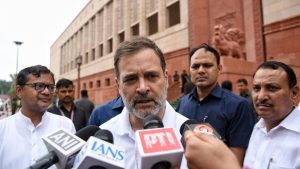
The controversial Rahul Gandhi On Indian Economy assessment extended beyond mere agreement with Trump’s comments. The Opposition Leader launched a scathing attack on the BJP government’s economic policies, accusing the ruling party of systematically destroying the nation’s economic foundation.
“He [Trump] is right, everybody knows this except the Prime Minister and the Finance Minister. Everybody knows that the Indian economy is a dead economy. I am glad that President Trump has stated a fact,” Gandhi told reporters when asked about the US President’s social media comments describing Russia and India as having “dead economies.”
The Rahul Gandhi On Indian Economy narrative specifically targeted the alleged Adani-Modi partnership, claiming that the BJP destroyed the economy to benefit industrialist Gautam Adani. This allegation forms a central component of the Opposition’s critique of the current government’s economic policies.
Foreign Policy Failures and Strategic Missteps
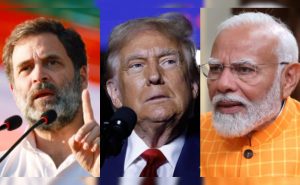

Beyond economic issues, the Rahul Gandhi On Indian Economy discussion encompassed broader foreign policy concerns. The Congress leader criticized India’s diplomatic positioning, highlighting what he perceives as strategic failures across multiple international relationships.
Gandhi questioned the effectiveness of India’s foreign policy, noting that while the External Affairs Minister claims genius diplomatic strategies, the reality shows the US “abusing” India, China pursuing aggressive policies, and no country condemning Pakistan for its actions.
The Rahul Gandhi On Indian Economy framework also addressed recent developments regarding the Pahalgam attack and Trump’s claims about brokering ceasefire agreements between India and Pakistan. Gandhi questioned Modi’s silence on these matters and Trump’s assertion that Indian aircraft were downed during conflicts.
Social Media Amplification of Economic Criticism
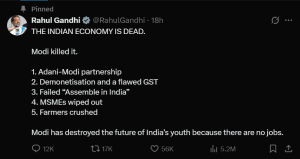

Following his parliamentary statements, the Rahul Gandhi On Indian Economy critique continued on social media platforms. In a subsequent post, Gandhi elaborated on his economic assessment, listing specific policy failures that he believes contributed to the current situation.
The comprehensive Rahul Gandhi On Indian Economy analysis identified five key factors: the Adani-Modi partnership, demonetization and flawed GST implementation, failed “Assemble in India” initiatives, MSME sector destruction, and farmer distress. These elements, according to Gandhi, have collectively destroyed opportunities for India’s youth by eliminating job creation.
Party Leadership Shows Nuanced Response
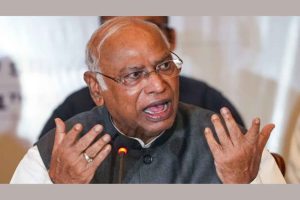

While strongly supporting the Rahul Gandhi On Indian Economy position, Congress President Mallikarjun Kharge adopted a more measured approach in his public statements. Kharge focused primarily on questioning Modi’s silence regarding Trump’s claims rather than explicitly endorsing the “dead economy” characterization.
Kharge’s response highlighted concerns about the 25% tariff and penalties imposed by the Trump administration, emphasizing potential damage to MSMEs, farmers, and various industries. His questioning of Modi’s “maun vrat” (vow of silence) in Parliament reflected the party’s strategy of holding the government accountable for its diplomatic responses.
The nuanced difference between Kharge’s approach and the direct Rahul Gandhi On Indian Economy statement illustrates varying strategic positions within the Congress party regarding criticism of national economic performance.
Internal Party Disagreements Emerge
Despite the prominent Rahul Gandhi On Indian Economy stance, some Congress MPs expressed reservations about endorsing Trump’s characterization. Notable party members, including Lok Sabha member Shashi Tharoor and Rajya Sabha member Rajeev Shukla, contradicted the US President’s statement.
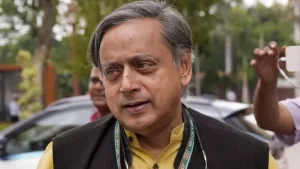

This internal disagreement within Congress ranks suggests that the Rahul Gandhi On Indian Economy position may not represent unanimous party thinking on the matter. The lukewarm response from these senior MPs indicates potential strategic concerns about endorsing foreign criticism of India’s economic performance.
BJP’s Counter-Response and Political Implications
The ruling party’s response to the Rahul Gandhi On Indian Economy statement came through BJP leader Anurag Thakur, who accused the Congress leader of consistently supporting “anti-India statements made by anyone in any part of the world.”
Thakur’s counter-narrative emphasized the “lost decade” during UPA rule, attempting to shift focus from current economic challenges to previous Congress governance periods. This response indicates the BJP’s strategy of contextualizing the Rahul Gandhi On Indian Economy criticism within broader historical frameworks.
Future Political Ramifications
The bold Rahul Gandhi On Indian Economy statement creates significant political implications for upcoming electoral battles and parliamentary debates. This endorsement of foreign criticism regarding India’s economic performance represents a high-stakes political gamble that could either strengthen opposition credibility or provide ammunition for ruling party counter-attacks.
As economic policies remain central to political discourse, the Rahul Gandhi On Indian Economy position will likely influence public perception of both opposition competency and government performance in managing national economic challenges.

